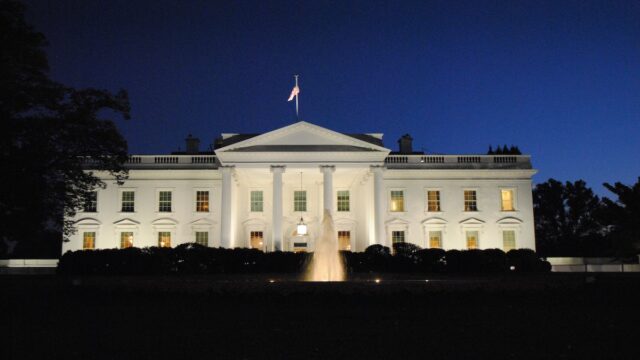Coalition Comments on OMB Equity Advancement
July 2021

July 6, 2021
Request for Information: Methods and Leading Practices for Advancing Equity and Support for Underserved Communities Through Government
Office of Management and Budget
Executive Office of the President
On behalf of our members, who collectively promote and protect the health and safety of nearly 62 million Americans, the Big Cities Health Coalition (BCHC) is pleased to submit the following comments in response to the Office of Management and Budget (OMB) Request for Information (RFI) to expand use of equity-assessment methods and approaches across the Federal Government.
Our members have been on the frontline of the COVID-19 response for well over a year now. In that time, they have seen and experienced firsthand the vast inequities that the pandemic brought to the forefront of the nation. It is now well known that COVID-19 disproportionately exposes, sickens, and kills people of color and those of lower socioeconomic status at rates far higher than their white, wealthy non-immigrant counterparts. These inequitable exposures and outcomes are the result of a long history of systemic racism that has influenced policies and practices related to employment, housing, transportation, health, and other societal issues. These inequities persist today and have been exacerbated by the pandemic. While COVID-19 brought these issues to light, our members have seen them and been working towards health equity for many years. In general, equity cannot be achieved without actively engaging local communities, both local governmental agencies and their partners in community-based organizations, throughout the process.
Achieving equity requires that we value all individuals and populations equally, recognize and rectify historical injustices, and provide resources according to need. To that end, every federal policy and funding decision must utilize an equity lens. While we have more publicly recognized disparities recently, it is still often easier to make decisions without considering possible unintended inequitable consequences. We must intentionally prioritize equity as more than empty talk. Late last year, in partnership with Human Impact Partners, and at the request of our membership, BCHC developed a Health Equity Lens Tool that helps health departments engage communities to ensure that all policy decisions are made with equity as the forefront.
To achieve a more equitable nation, we recommend the federal government ensure:
- Disaggregated data that are collected and linked across federal, state, and local governmental agencies to determine funding and help identify connections between health status, race/ethnicity, and the social determinants of health, including (but not limited to): employment status and work conditions; housing affordability and stability; economic stability, income inequality; health insurance status and access to primary care; carceral status; and availability (or lack of) paid sick leave. Prioritizing data, both quantitative and qualitative, is essential in understanding impact. For instance, OMB could look across agencies and indicate what percent of all federal funding goes to communities with high levels of unemployment, and OMB, in conjunction with partners could determine how to increase that percentage and what the impact would be if that percentage increased.
- Clear, consistent, and data-driven guidance about equitable policies, procedures, and processesto ensure resources reach those most at-risk where they are located. An example of data-driven equity-focused decision-making at the state level can be found in the California Healthy Places Index, which combines 25 census-level, evidence-based, publicly available, actionable indicators that are associated with life expectancy at birth into a single indexed Score, as well as eight sub-scores (Economic; Education; Housing; Health Care Access; Neighborhood; Clean Environment; Transportation; and Social factors). This tool has been used to support decision-making related to grants and other programs that prioritize funding based on community conditions.
- Sustained and long-term access to funding, human resources, and supplies necessary to reach areas and populations that are most in need. This should begin with an initial baseline reporting on percentage of funding, including subcontracts, that reaches neighborhoods most at risk (as determined by social determinants of health or other indicators related to quality-of-life and life expectancy at birth). In order to increase this percentage, federal agencies should consider engaging foundations like the CDC Foundation, who are able to make smaller awards to smaller organizations which may not be able to compete for large agency awards.
- Early and active engagement with local jurisdictions. It is vital to engage community members when planning and implementing communications, activities, indicators, programs, and policies. Local jurisdictions are experts in their communities, needs, and inequities, and local jurisdictions can bring in their relevant community partners as appropriate.
Finally, as you are aware, there is no government agency at any level that is officially charged with seeing “the big picture” and addressing the many complex and interconnected issues that contribute to inequity overall. We appreciate each agency’s role and OMB’s role in this RFI, but there is room for more coordination and cross-cutting work, such as making the direct connection between the Department of Housing and Urban Development, the Department of Transportation, and the disparities in quality-of-life outcomes and life expectancy across our country, and then working together towards equity.
We again thank you for your work on these critical issues, and we appreciate the opportunity to comment. We also welcome the opportunity to discuss these issues further. Please do not hesitate to reach out to us as you move forward. You may reach BCHC staff or our members collectively by contacting me at 202-557-6507 or juliano@bigcitieshealth.org.
Regards,
Chrissie Juliano, MPP
Executive Director
Big Cities Health Coalition